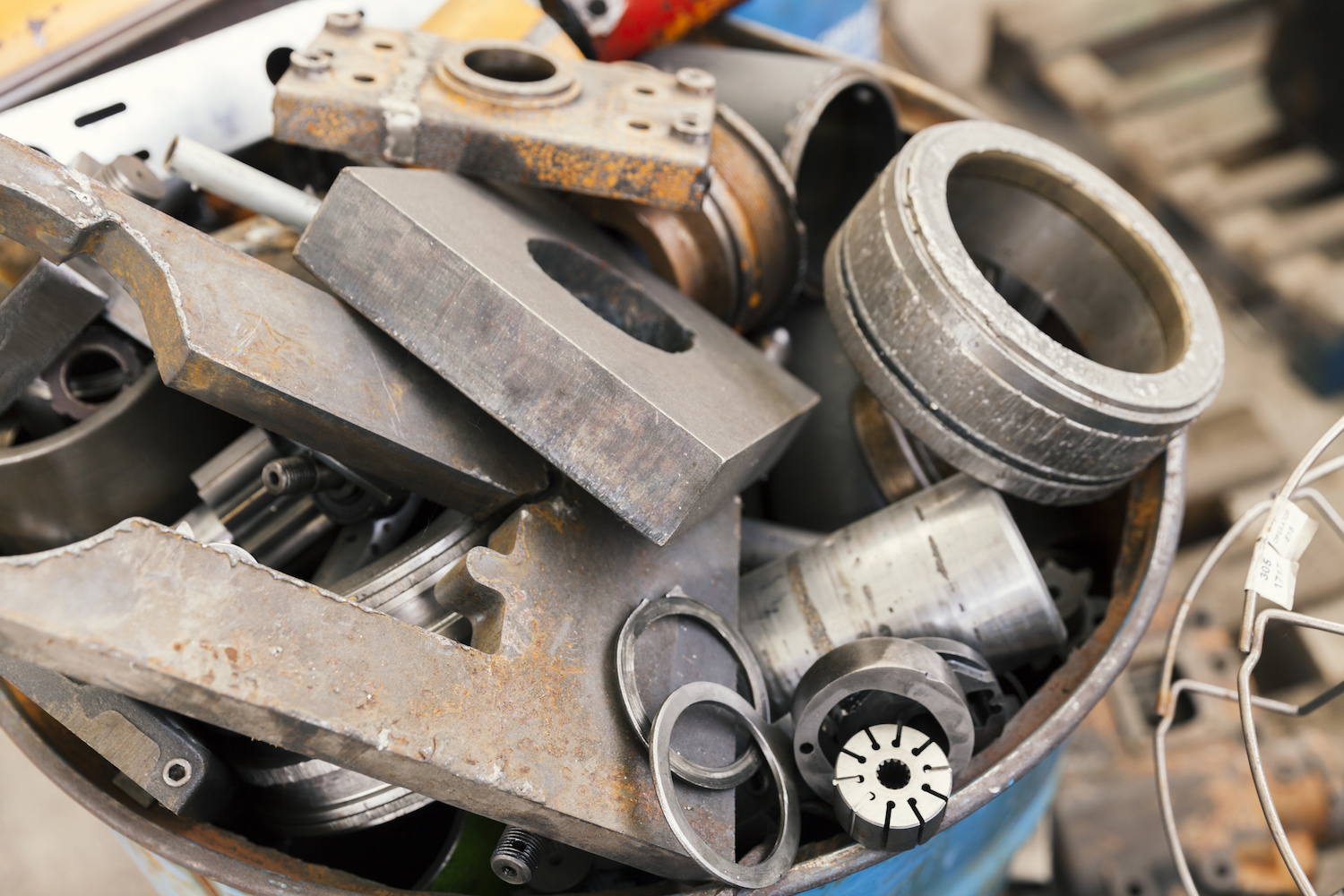Australia generates roughly 5.3 million tonnes of metal and steel annually. A massive portion of it goes into producing consumer goods and construction equipment. But while Australia’s metals industry is rising sustainably, another by-product is keeping up: scrap metal.
Many scrap metals in the Greater Sydney Area don’t undergo proper recycling and waste disposal processes. From 2022 to 2023, the scrap metal recycling market saw a 12.5% decrease.
But aside from rubbish removalists and recycling facilities, you can play a role in disposing of metal at home or work.
Sydney’s local businesses and households generate more than 588 tonnes of metal annually. However, 2.5% of it goes into landfills—that’s roughly 14.7 tonnes of scrap metal!
Aside from wasted valuable resources, improper disposal of scrap metals at your home or workplace can lead to severe health and safety risks.
Here are the best ways to dispose of waste and scrap metals using environmentally-responsible and proven methods from our Sydney rubbish removalists.
Identify Your Metal-Containing Rubbish
You can do many things to dispose of scrap metal properly. But most of them won’t be readily available since scrap metal is often incorporated in electronics, appliances, equipment, etc.
Before following the steps below, knowing which objects contain metal is vital. Metal comes in two common types: Ferrous and non-ferrous.
Ferrous metals contain iron and are commonly found in old cars, engine blocks, garden tools, and construction materials. Iron-containing metals are easy to distinguish as they are naturally magnetic and will eventually rust to form iron oxide when exposed to oxygen (in water and air).
Non-ferrous metals, on the other hand, are usually found on metal cabinets, measuring equipment, computers, precision tools, modern car frames, and most appliances. Unlike ferrous metals, this type of metal is not magnetic and won’t rust.
Look around your household and workplace and try to spot the usual sources of metal waste. There’s a good chance your home or office space has a stock room full of broken appliances/computers or heaps of scrap metal pipes, scaffolding, and unwanted car parts.
Collecting and Sorting Metal Waste
Different metal types undergo unique recycling processes. To ensure that your scrap metal goes to the right recycling facility, organise your scrap metals based on whether they’re non-ferrous or ferrous.
Ferrous metals include cast iron, iron sheet, light iron, and all types of steel (carbon steel, stainless steel, etc.).
Non-ferrous metals include aluminum, copper, gold, zinc, and bronze. Non-ferrous metals are often rarer and will cost more than ferrous metals. So separate them if you’re planning to explore the scrap metal market.
Our rubbish removalists recommend organising metals in large plastic bins to protect your family and colleagues from injury and health risks. Keeping them in bins makes them easier to transport and dispose of later.
Additionally, we work with many metal fabrication companies across Sydney to help safely dispose of all types of metals. If you’re one of these companies, don’t hesitate to call us to organise either a once-off pick up or schedule regular pick-ups.
Check if Your Phone/Computer Brand has a Take-Back System
Tech brands such as Samsung and Apple implement take-back systems for consumers. In a take-back system, the computer/device manufacturers will take back their end-of-life products from consumers for free.
If you have old phones, electronics, and computers, we recommend you check if your tech manufacturer has a take-back system in your local area.
Otherwise, they may ask you to ship your old electronics to their nearest location. It may sound counterintuitive to ship e-waste, but manufacturers will know how to process and responsibly dispose of e-waste.
We highly recommend this for Sydney businesses that generate lots of e-waste.
Find Your Local Scrap Yards
Your local scrap yard should buy metal waste, whether separated or embedded in appliances. They usually pay scrap metal per kilogram, and this will depend on the type of metal you sell them.
Construction and industrial businesses can benefit a lot from local scrap yards. These industries generate tons of ferrous metals—sometimes even entire cars and equipment.
Scrap yards earn money by selling bought metals into refineries. That’s why they only accept recyclable metals that are properly segregated. Since refineries only buy metals in massive quantities and in bulk, your local scrap yards may suit your needs better.
Partner With Reputable Rubbish Removalists in Sydney
If you only have so much time to sort, sell, and dispose of your metal waste, a reliable local rubbish removal team can do all that for you.
Rubbish removalists have the tools and skills to collect and dispose of metal scraps responsibly. For one, At Paul’s Rubbish Removal Sydney, we have a broad network of recycling and processing facilities that accepts ferrous and non-ferrous metal waste.
We specialise in handling harmful waste materials, particularly rusted, sharp, and massive heaps of metal scraps. We’ll arrive at your property equipped with bins and safety gear to remove your broken appliances, computers, renovation waste, and other metal scraps on the same day.
Conclusion
Living around piles of rusty metals is outright risky for homeowners and employees. However, getting rid of metals is not a walk in the park. So make sure you have the right team to back you up.
Contact us at Paul’s Rubbish Removal for your same-day metal rubbish disposal, and we’ll make sure no loose screw will remain. We’ll do all the heavy lifting, sorting, and removal for you.







